The Story Mystic: The Ritual of Kathabhinaya
Kathabhinaya invites storytellers to share their art, fostering dialogue and knowledge exchange. Our blog features articles, performance announcements, and photographs, all aimed at evolving storytelling into a healing process while achieving sartorial goals. Join us in celebrating the primal art of storytelling through a soothing and intellectual lens.
Janardan Ghosh
4/24/20253 min read
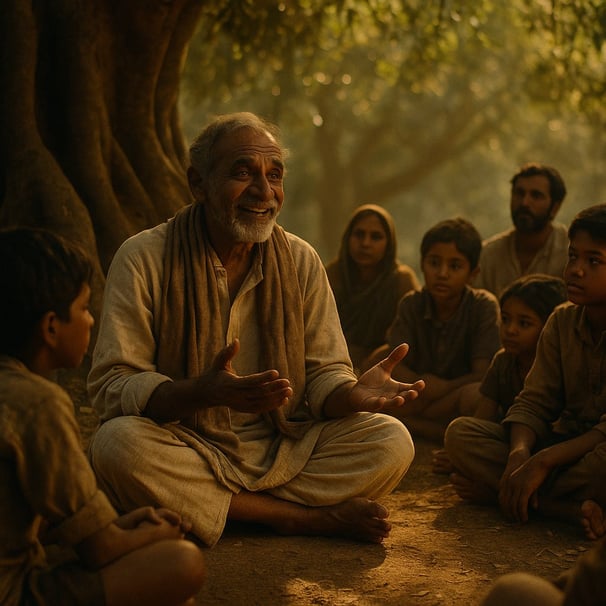

Where Stories Breathe
Stories aren’t static. They breathe. They shift shape. They die in one mouth and are reborn in another.
Each story gathers memory, picks up dust, collects echoes. Like a soul cycling through lifetimes, a story ripens with karma—its own invisible ledger of joy and pain.
The teller is not a narrator.
They are a pollinator—a bee carrying the nectar of memory from blossom to blossom.
The listener is not passive.
They are the flower, open, pulsing, waiting to be transformed.
This is not performance.
It’s pollination. It’s alchemy.
Kathabhinaya: Fire Beneath the Stillness
Kathabhinaya doesn’t just tell a story—it becomes the story.
It is born at the intersection of the classical and the folk, where the Natyashastra meets the whispers of village nights. From the fervor of Pandavani, the grace of Patachitra, to the earthy play of Dasakathia, Kathabhinaya distills centuries into gesture.
Here, the body remembers.
Muscle becomes memory.
Runanubandha—the threads of unfinished karmas—stir within skin and sinew.
At its peak, the performance dissolves into Rasa—a tasting of the divine.
Not entertainment.
An awakening.
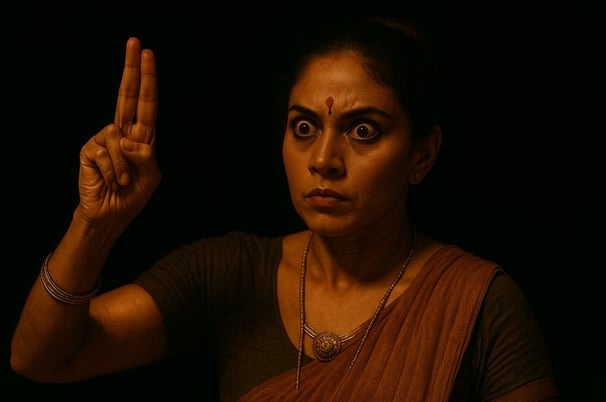

The Path of the Sadhaka
To walk this path is to become a Sadhaka—not a performer, but a seeker.
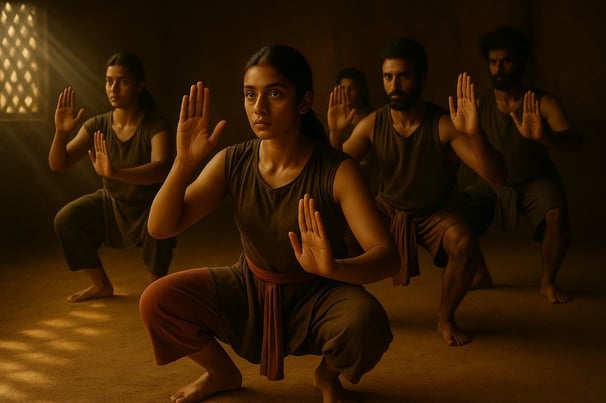

The Six Ss
There are no secrets in this art.
But there are Six Ss—six guiding forces in the performative field.
We won’t name them here.
Not because they are hidden,
but because they must be experienced.
You don’t recite the story.
You don’t mimic the character.
You let go—until the story wears you like skin.
This is not storytelling.
This is possession by myth.
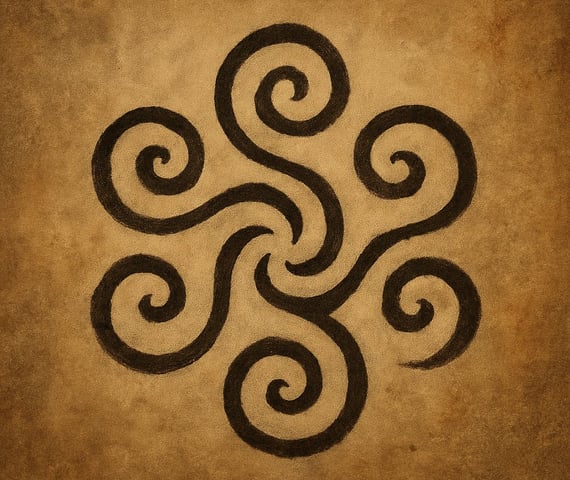

The Reawakening
Photo: A dusk-time village performance. A flickering lamp. A gathered crowd. Breath held in hush.
Kathabhinaya was never lost.
It was only waiting—beneath the surface, like fire under ash.
Now it stirs.
In temple courtyards. On cracked stone stages. In studio spaces heavy with sweat and silence.
The art returns—barefoot, bold, unbroken.
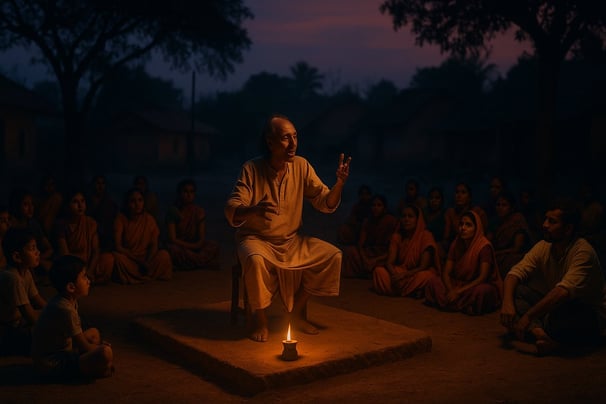

Come close.
Step in.
Let it melt you into its breath.
Shravana. You listen—not for plot, but pulse.
Kirtana. You sing—not for melody, but metalanguage.
Dhyana. You sit—not in words, but in stillness.
The Siddha Rupa—the story-shaped body.
Mudras aren’t signs. They are spells.
Emotions aren’t acted. They are summoned.
You don’t pretend the ritual. You perform it into being.
Visualize. Recreate. Inhabit.
An image is not a picture.
It is a portal—drawn from the idioms of folklore, dreams, gods, and grief.
You don’t just learn lines. You enter the story’s silence.
You don’t rehearse. You remember—not as mind, but as body.
Training unfolds in threes.
Three planes. Three practices.
The Narrative as Meditation
The Rhetoric of the Image
The Perfected Body
Kathavachak Janardan Ghosh
Founder, Kathabhinaya | Scholar Mystic
